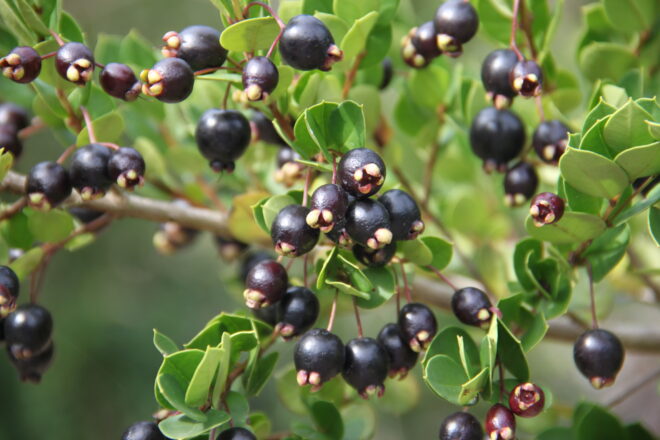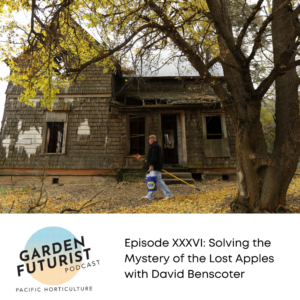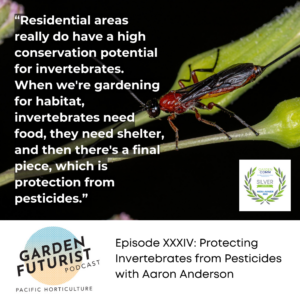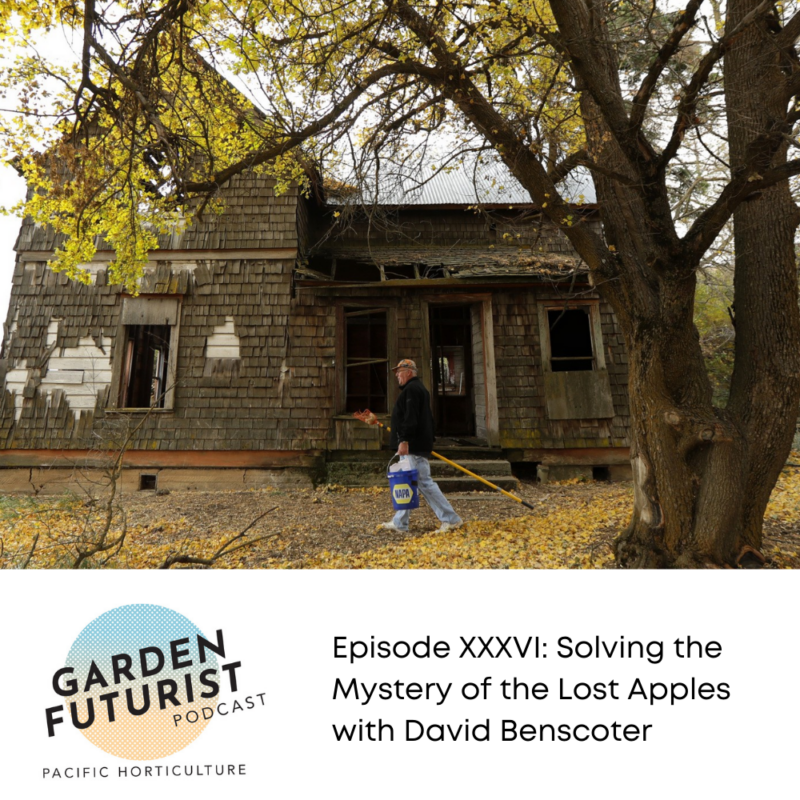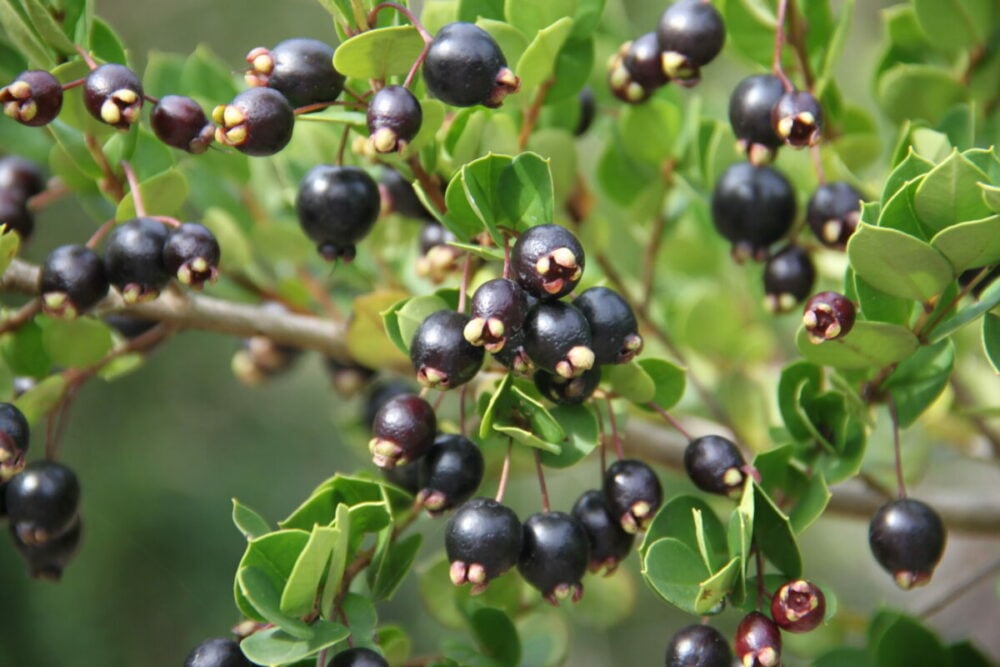

Contributor
The Fetzer Vineyards’ habitat borders in summer. Author’s photographs
Flowering plants emerged 100 million years ago, and during the Cenozoic era some 40 million years later, ascended into the world’s vegetation. Much of their co-evolution was mutualistic: whole complexes of species came to seal obligatory partnerships with their insect counterparts.
Edward Wilson, The Forgotten Pollinators
Isn’t it time, after sixty million years, that we begin to establish an appropriate relationship with insects and plants, a long overdue tête-a-tête in our gardens? Can’t we apply the same sort of wisdom and understanding that we now reserve for our feathered garden visitors?
A habitat garden provides a setting for wild creatures to exist happily with people. It includes plants selected to attract and feed beneficial insects, butterflies (both caterpillars and adults), pollinating insects, and birds. These creatures need flowering and fruiting plants to sustain them—some along their migratory routes, and some where they live seasonally or year round. Increasing development, human population growth, and toxic sprays a...
READ THE WHOLE STORY
Join now to access new headline articles, archives back to 1977, and so much more.
Enjoy this article for FREE:
The Native Flora of Chile in The Traveler’s Garden at Heronswood by Dr. Ross Bayton
If you are already a member, please log in using the form below.
Share:
Social Media
Garden Futurist Podcast
Most Popular
Videos
Topics
Related Posts
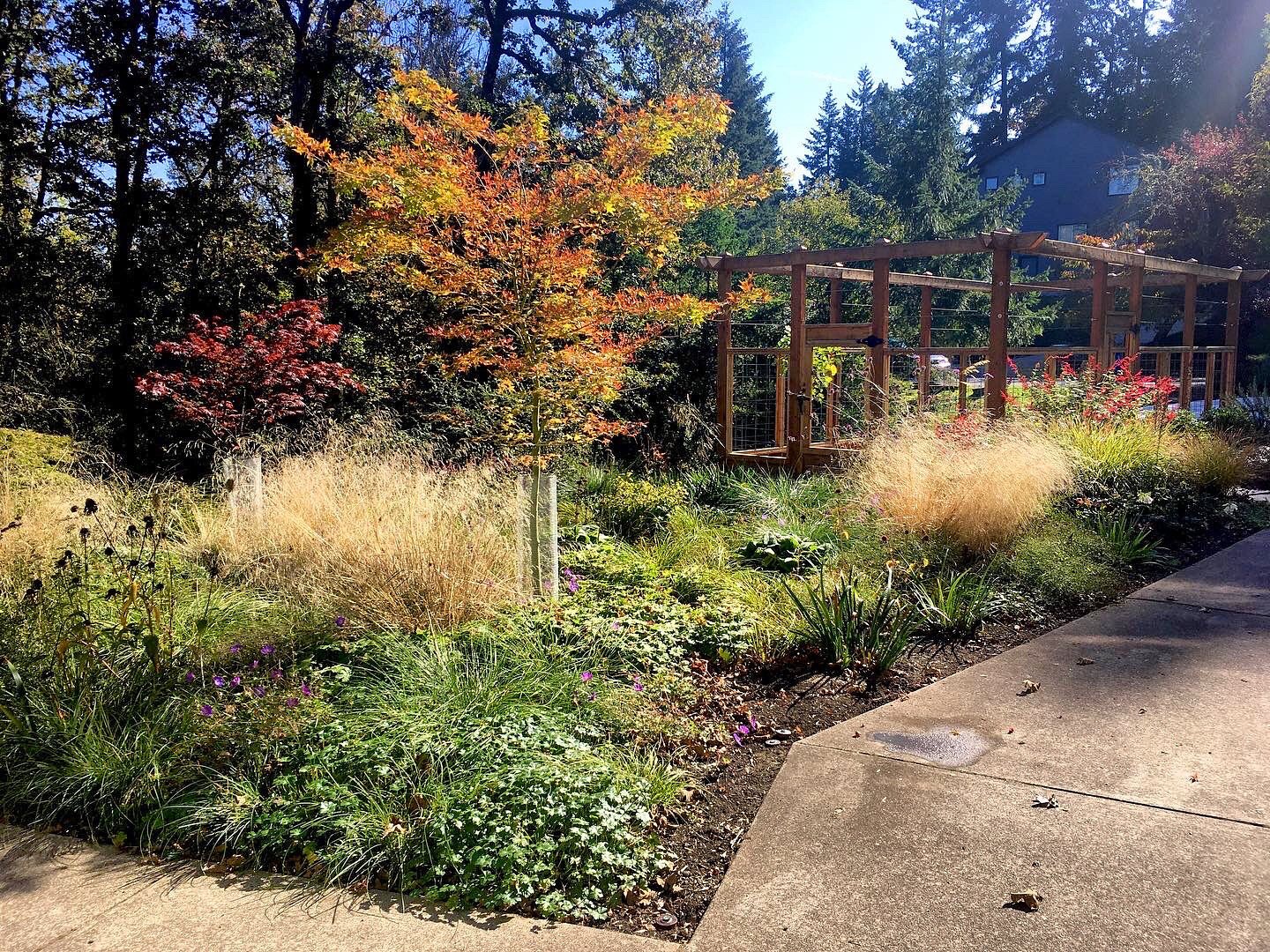
Low Maintenance Gardens – Better for Pollinators and People
Autumn 2022 “I come out every day. It’s therapy, my meditation.” Janet’s young garden transformed from overgrown, invasive plants to mostly natives. The dailiness of
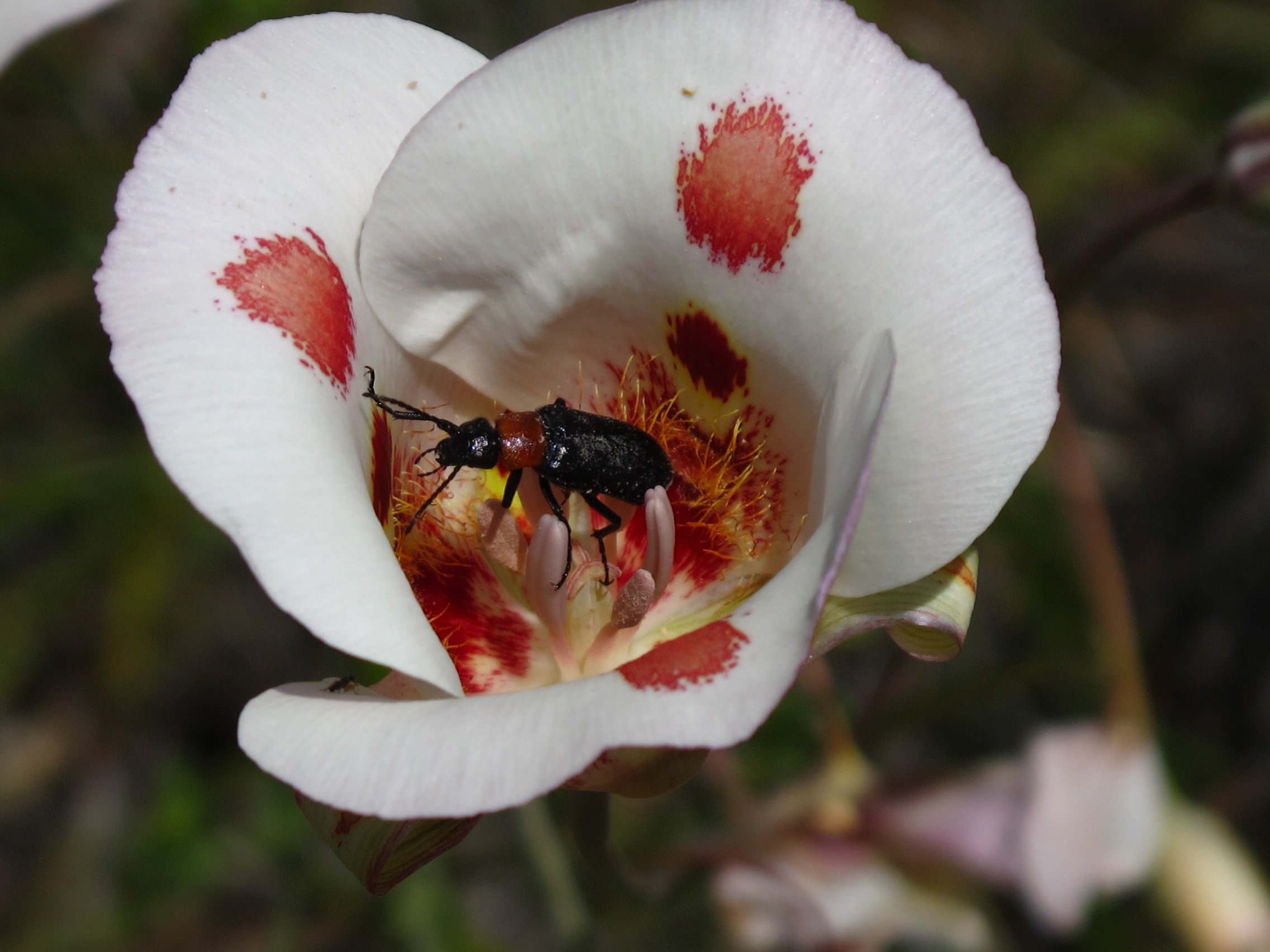
Calochortophilia: A Californian’s Love Affair with a Genus
Summer 2022 I can chart the progression of my life by Calochortus. For the last two decades, at least. As a teenage girl growing up
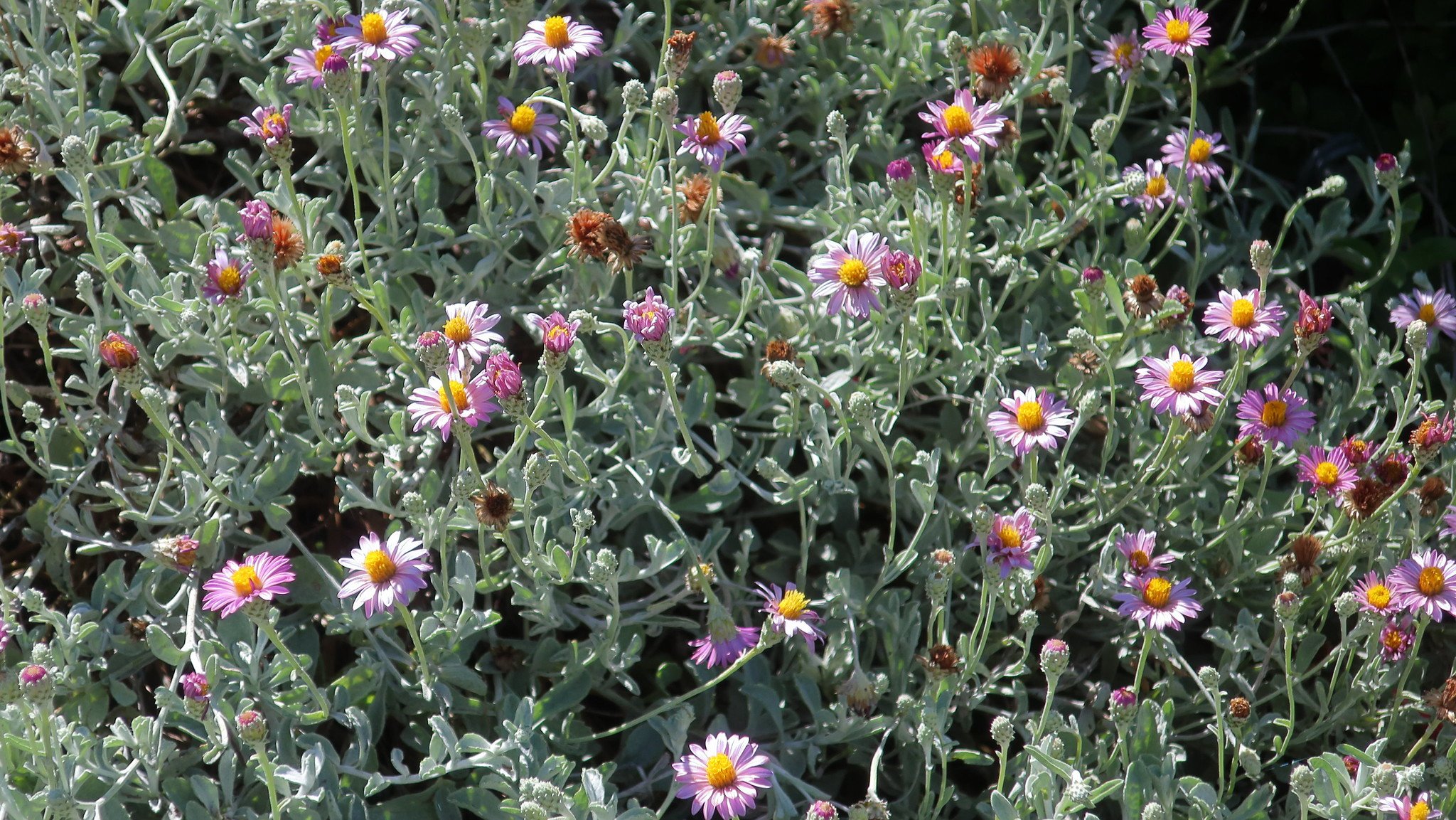
Pacific Plant People: Carol Bornstein
Spring 2022 Public gardens play a key role in demonstrating naturalistic planting design, selecting native and adapted plants for habitat, and testing techniques for reducing
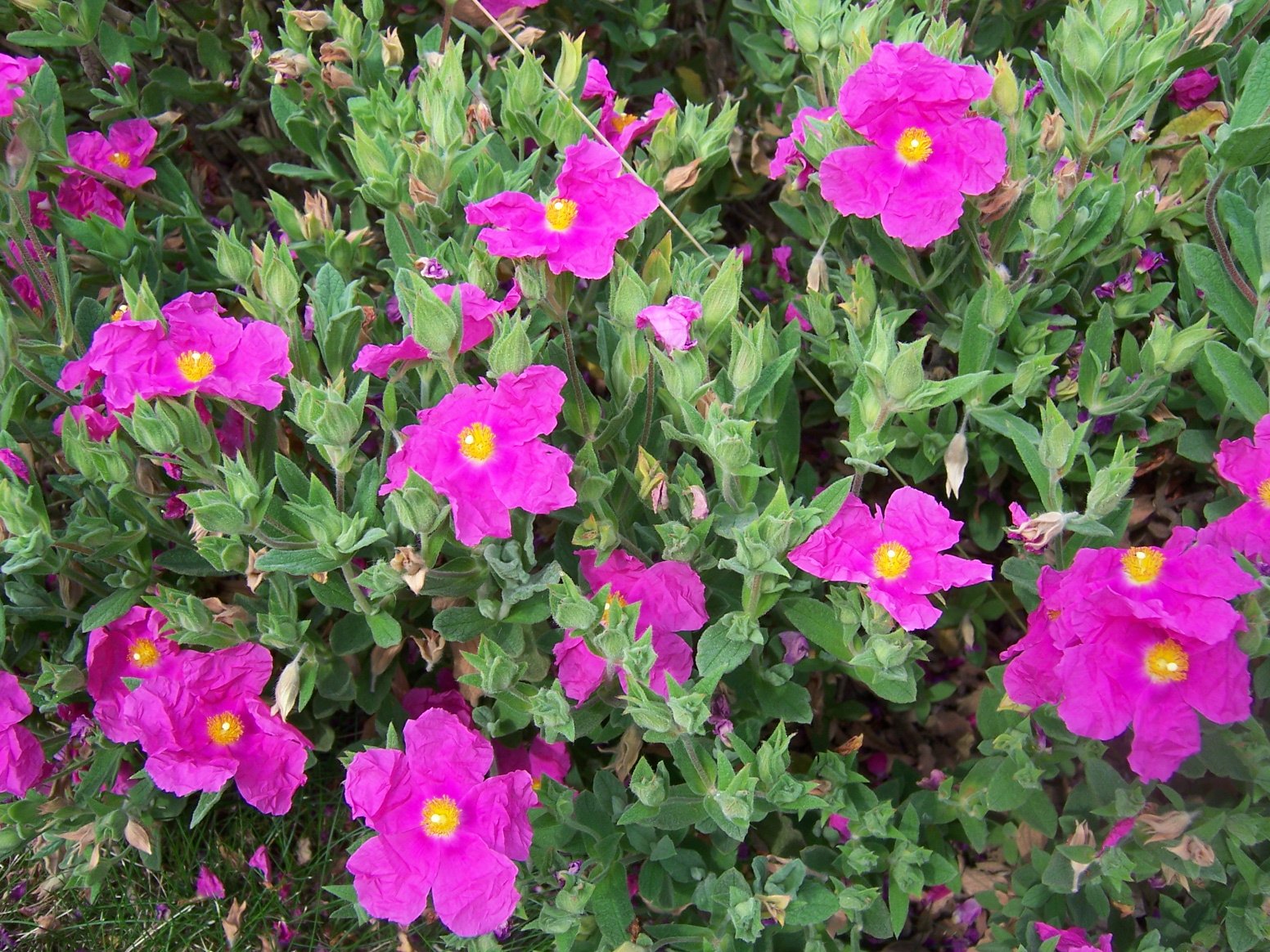
Add Year-Round Interest and Winter Blooms for Pollinators
Spring 2022 This article was created from an Interview by Merrill Jensen with Neil Bell in the Summer of 2021 for our Pacific Plant People


